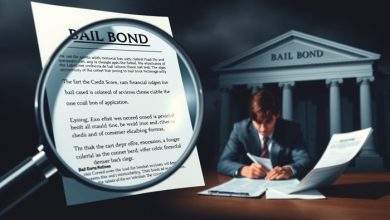
Wrongful death cases allow families to seek compensation for losses caused by another person’s negligence. These claims help cover financial needs and acknowledge the emotional impact of losing a loved one. Understanding the types of compensation available can help families make informed decisions during a difficult time.
Seattle, located in the Pacific Northwest region of the United States in Washington state, is known for its bustling waterfront, iconic skyline, and thriving tech and cultural scene. The city features busy urban neighborhoods and popular tourist spots.
Families often move through crowded streets, fast highways, and active construction zones, making navigation challenging and increasing the risk of accidents. These conditions can lead to serious accidents that change the course of a family’s life. During such moments, many people seek guidance from a Tacoma wrongful death lawyer to understand their rights.
Economic Damages Families Can Claim
Economic damages cover the financial losses directly connected to the death. These costs are often significant, especially when the person who passed away was the primary source of income.
Medical Costs Before Passing
Some victims receive medical care before they pass away. Families can claim the cost of:
- Emergency treatment
- Hospital stays
- Surgeries or procedures
- Medication and testing
These expenses can add up quickly, and compensation helps reduce the burden.
Loss of Income and Benefits
Income loss is one of the largest parts of a wrongful death claim. Families may recover:
- The income the person would have earned
- Work-related benefits
- Expected future raises
This helps support the family’s long-term financial stability.
Funeral and Burial Expenses
Funeral services and burial arrangements bring more financial pressure. These costs may include:
- Funeral home services
- Burial or cremation
- Transportation
- Memorial arrangements
Compensation can help families manage these necessary expenses.
Non-Economic Damages in Wrongful Death Cases
Non-economic damages focus on emotional loss. These losses are harder to measure but deeply meaningful to the family.
Loss of Companionship
This covers the emotional impact of losing a partner, parent, or child. Companionship includes support, care, and the presence of a loved one. These losses often have lasting effects.
Loss of Guidance
Children who lose a parent may receive compensation for the loss of guidance and support. This includes advice, emotional care, and the shaping of life choices.
Pain and Suffering of the Victim
If the victim suffered before passing, families may recover damages for that experience. This acknowledges the physical and emotional pain the person endured.
Damages Related to Household Support
Families often rely on the daily help and services provided by the person who has passed away.
Childcare and Household Services
A wrongful death claim may include:
- Childcare
- Housekeeping
- Meal preparation
- Transportation
These services carry real value and may now require paid help.
Loss of Future Support
This covers the practical support the person would have provided through the years. Courts consider age, health, and life expectancy when calculating this amount.
Loss of Inheritance
If the death affects the financial future of dependents, families may claim the loss of inheritance. This includes the money or assets the person would likely have saved or earned over their lifetime.
Punitive Damages in Some Cases
Punitive damages are rare but possible. These damages punish the wrongdoer when their behavior was extremely reckless. The goal is to discourage similar actions in the future. Not all states allow punitive damages, and they depend on the details of the case.
How Lawyers Help Families Understand These Damages
Wrongful death claims involve many details. Lawyers guide families through the process and help them understand what types of compensation apply to their situation.
Collecting Evidence
Lawyers gather records, reports, and financial documents. This strengthens the claim and helps support each type of compensation.
Working With Experts
Some cases need help from financial planners, medical professionals, or accident specialists. Their input clarifies the full impact of the loss.
Negotiating With Insurance Companies
Insurance companies often try to limit what they pay. Lawyers protect the family’s rights by presenting clear evidence during negotiations.
Providing Emotional Support
Families face stress and confusion during wrongful death claims. A wrongful death lawyer explains each step and helps lighten the emotional load.
Key Takeaways
- Families can recover economic and non-economic damages.
- Compensation may include medical bills, funeral costs, and lost income.
- Emotional losses such as companionship and guidance are also considered.
- Some claims involve loss of services, inheritance, or rare punitive damages.
- A lawyer helps families understand their options and protect their rights.




